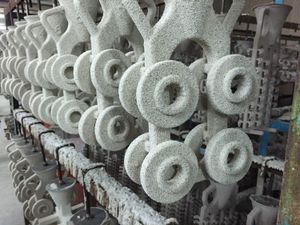After almost seven and a half years in publication, this newsletter crossed 10,000 subscribers last month - and then almost immediately jumped to 11,000. To celebrate this, and in the spirit of showing you how the sausage is made/being emotionally available, I present to you The Prepared’s first ever AMA/group interview issue. The interview subject: Yours truly!
The questions below are taken from a town hall chat we had in the #meta channel on the Members’ Slack last week - and from a few inquisitive and thoughtful readers I’ve gotten to know over the years. Enjoy, and be in touch :)
-Spencer Wright
And now, to the interview! The questions are italicized and blockquoted; my responses are the unformatted text. As you read it, I invite you to picture me as seen in the photo here:

James Coleman: Simple but complex question: Why do you think the 10,000 people that subscribe read the newsletter? What is the primary value(s) it provides?
I think it's mostly entertainment, and the opportunity once a week to share a smart-seeming factoid with their colleagues. In other words, I think a lot of folks read the newsletter and then share things in their work Slack, etc.
There have definitely been times that I've pitched the newsletter as a way to stay abreast of an industry or set of industries, but in reality most of what makes it into The Prepared isn't super newsy. I prefer interesting, meaningful, and valuable things over new ones, and anyway The Prepared maintains a weekly schedule rather than a daily one. If what you want is an IV hooked right up to the press release fire hose, there are a lot of other publications that are better suited to that need.
Cindy Feng: What metrics are most important to you for running The Prepared? What's on your mind lately with regards to it?
I look at new subscriber counts like a fiend - multiple times per day. I also track the ratings on each issue of the newsletter (in the footer - they've been there for maybe 9 months) pretty closely, though that's more of a weekly thing than a daily one.
But, the really meaningful stuff is when someone posts to social media to say the newsletter or community matters to them in some way. I know how hard it is to share things that you like, and the idea that someone is willing to recommend The Prepared to people who matter to them is huge. That and hiring - when I learn that someone got a job through The Prepared it means a ton.
As far as what’s on my mind now: 2020 was my first year running The Prepared full time, and by any measure (reminder: 2020 was generally a horrible year) it was a massive success. And, I feel way overcommitted. There are too many things on my plate, and I *really* want to hire someone to help run the newsletter, the community, and all the other things that The Prepared should be doing a better job at/should be doing at all.
Alex Kingsbury: How do people find out about The Prepared? What channels are you relying on currently? What would you like to do more/less of?
For a long time my subscribership funnel came mostly from the other things I did professionally - people either followed my personal blog or were curious about Undercurrent (RIP), The Public Radio, or nTopology (now a sponsor of this newsletter). Then there was a period where feature articles on theprepared.org were a big driver, though they were hard to schedule and labor intensive to create. I really do want to make features a thing again (please pitch me a story!) but recently the biggest sources of subscribership have been my appearances on others’ platforms (Cool Tools, Why Is This Interesting, other random interviews - I enjoy doing these and am always looking for other outlets) and paid advertising in other newsletters. That last thing - paid advertising - felt very weird to get into, but it’s taught me a lot about both a) how to describe what The Prepared is, and b) how I price my own sponsorship packages.
Alex Kingsbury: How has Fatherhood changed your approach to life and work? What conscious choices have you made to support your young family, and how has that changed your perspective?
I had this idea a year or two ago that instead of retiring at 65, it would make more sense to have a ~10 year retirement period that starts nine months before you have kids.
I have not acted on this idea. The reality is to the contrary: One of the first things I learned as a parent was that I have a hard time *not* working a full week. It’s something that I need to work more on, but for the time being I’ve more or less decided to accept some degree of workaholism in myself.
With that said - and while acknowledging that people who don’t have kids should still care about their own mental health, the environment, etc - it’s definitely the case that parenting has changed me. For one, I’ve become way less interested in business travel; for two I care a lot more about free cash flow than about some big payout down the road; for three I’m more conscious of my impact on the earth and my role in my (physical and professional) community.
Amreeta Duttchoudhury: I love seeing all the time you spend trying to inspire your daughter around making/manufacturing/physical world things on your IG. What are you doing to make manufacturing "cool" to her?
First of all, having kids is way harder than I expected. There’s this complete nonlinearity in the relationship between what I think I want to instill in her and what she actually picks up from me. I spend a *lot* of my parenting time making big mistakes with emotionally intense consequences, and it’s a constant struggle to remember that, in fact, I’m the problem.
Anyway, shop time with Nora (who is now a little over four years old) is a really, really special time for me. I try really hard to let her lead me towards things that she wants to explore, and I’m conscious of the fact that the biggest factors in her associating shop time with good feelings are the feelings that I express during shop time.
And, I worry about how I’ll deal with each of my kids (our younger one, Tess, is 20 months old) as their interests wander and expand beyond the things their parents show them. My most successful parenting moments are when I’m easygoing, empathetic, and totally free of self-interest; as my kids grow and their interests become more specific (and potentially different from my own), I’m sure my own tendencies around this will be tested.
Sylvia Smullin: What do you do when you aren't writing the newsletter?
When I’m not with my family I’m usually noodling around the workshop. I have this deep emotional response to having completed a physical task, and I’m constantly chasing that high.
Sylvia Smullin: What do you look for in a guest writer?
Most of all I look for someone who can communicate a compelling perspective that I myself don’t hold; often the person also has a somewhat different personal background than I do. As far as writing style goes, I like it when people are able to both argue for a point of view and also include a good amount of technical detail - and do so while using “I statements” and acknowledging that personal factors matter.
Sylvia Smullin: Do you really want people to reach out to you/cold call you?
Yes! It’s a big part of my job. The caveat is that it *is* my job, and specifically that I include 40 minute coffees/Zooms with Personal Memberships to The Prepared. In other words, if you want help from me and it seems like you could afford a Membership, I’ll ask you to become a Member so that I’m not being asked to donate my (limited) time to your problem.
Laura James: I see The Prepared as cutting across hardware/manufacturing/logistics and “digital stuff.” From the digital stuff side, it seems like there are growing tensions around disproportionately high salaries/financial gains for tech workers, and also the unclear/variable connection of workers to the impact of their work on society at large. Looking at the hardware/manufacturing/logistics side, how do these issues look? Are workers in these areas aware of their impact (e.g. on sustainability, social justice), and do they feel they have agency there?
I’m inclined to say yes, at least to the extent that I write a newsletter that makes a real attempt to grapple with these issues and there are about 11,000 people who seem to really like it. I also think there’s a lot of hypocrisy within the tech industry around sustainability specifically; software engineers are just farther from atoms and therefore it’s easier for them to think about environmental impact as an abstract concept (I’m lookin’ at you, crypto everything).
Russ Fogle: What is your idea of the ideal number of subscribers (to the free newsletter and to the paid Membership program)?
“More,” he replied, as he chugged away on his own personal hedonic treadmill.
But seriously: I think that 50k free subscribers would be pretty cool - lots of mediocre trade journals have lists that size, and my product is frankly a lot better than theirs. But I acknowledge that growing the list is a never ending thing, and there's probably no single number that will feel satisfying.
As far as the Members’ Slack instance goes, I think that growing slowly is probably a good thing. I'd love to double its size (to roughly a thousand people) in the next year to 18 months, but there's also a healthy churn rate and it wouldn't be terrible for its growth to be slower. It’s way easier to nurture and maintain a healthy community when it’s growing slowly.
Nick Fountain: What are the biggest pain points in putting this thing together?
Probably growth, and specifically asking people to share the newsletter with friends/colleagues/social media. Also, my own imposter syndrome results in me spending time doing things that don’t have a super clear business payoff, like making workbenches and sharpening chisels. This kind of work is really important to me emotionally, but there are times when I knowingly use it to distract myself and that can have negative effects.
Jacob Hennessey-Rubin: What has surprised you the most?
I started The Prepared with the idea that it would help me find a job/career, but I really never thought that it would become my career. That's been a pretty huge surprise.
David Nichols: What are the closest siblings or similar communities to The Prepared that are not The Prepared?
The (private) Why Is This Interesting editors’ Slack is very good. I also like the Infrastructure Club Slack, which is very fun and nerdy.
Skyler Adams: Are there any other communities/newsletters you use as role models?
I hadn't thought about the community-as-role-model question directly, and I think the answer is no. But, there are a number of reference points that I do think about fondly:
In college, I worked at a student run nonprofit bike shop on campus. It was a totally independent entity from the university, and at the time I joined there was an exodus of people above me and a lot of the basic business infrastructure collapsed right as I was assuming a leadership position. It's crazy thinking back on some of it - one of my biggest achievements was making all of these accounting forms by hand writing them out on legal paper and photocopying them. Anyway, it was the first time I really tried to rally enthusiasm around something and while I can't tell you what I learned from it, I'm sure I learned something.
More distantly: I've said/written it many times but I love the idea of MIT Building 20 - how diverse the studies there were and how you were always literally bumping into people because the hallways were narrow. I want the Members’ Slack to feel like that to everyone who joins; to me it already does.
re: Newsletters: The first newsletter I subscribed to was probably Benedict Evans's, but honestly I find his writing unpleasant and these days I no longer subscribe to him at all. Ben Thompson is probably the next touchpoint, but his topic and style is soooo different from what I do that it isn't worth comparing. The last newsletter I’ll mention is Alexis Madrigal's 5 Intriguing Things, though that's mostly defunct now.
However, none of those are really role models. And as much as I like other newsletters (theprepared.org/mx-record has most of the ones I subscribe to) I'm not sure I really look up to any of them per se. I say that with total respect: The Prepared's subscribers just always gave me really good feedback, and that's been the biggest driver of its evolution.
John Hart: Name 5 everyday things that will be made by 3D printing in 10 years.
I’m not sure I can do this, and I’m not sure that it matters. The analogy I like to use for (metal) 3D printing is PCC, the leader in precision casting that’s now owned by Berkshire Hathaway. If you ask the random person on the street to name a cast part in their lives, they’ll probably just say a skillet; there just aren’t a lot of quote unquote “everyday” objects that are made via casting. But at the same time, PCC is a really big and really important business. They do ~$10B in annual revenue and I believe they’re still the largest acquisition that Berkshire Hathaway has ever made. They make critical parts for aviation and turbomachinery, which means that anyone who’s flown on a plane or used power off of the US electrical grid has probably interacted with PCC in some distant way. The world would be massively different without them. But most people have no idea they exist, and I don’t hold that against them - or PCC.
Now, of course one of the premises of The Prepared is that you, dear reader, should care about PCC - and all the different varieties of 3D printing, and also waterjet laser cutting, and the cost structure of apparel manufacturing, and how you really can’t make concrete out of sand from the desert due to its grain shape distribution, etc etc etc.
So I suppose that my optimistic answer to your question is that I hope there are scores and scores of everyday parts that are 3D printed in 2031. But the real change I’m hoping for is not so much the popularity of a specific manufacturing process, engineering method, or infrastructural system - some much as it is the way that society views engineering, manufacturing, and infrastructure.
Thanks as always to The Prepared's Members for supporting The Prepared. Thanks also to everyone who sent in questions - you're an excellent group of interlocutors.
Love, Spencer.
p.s. - We should be better friends. Send me a note - coffee's on me :)
p.p.s. - We care about inclusivity. Here's what we're doing about it.
p.p.p.s. - We're always looking for interesting links. Send them here.




